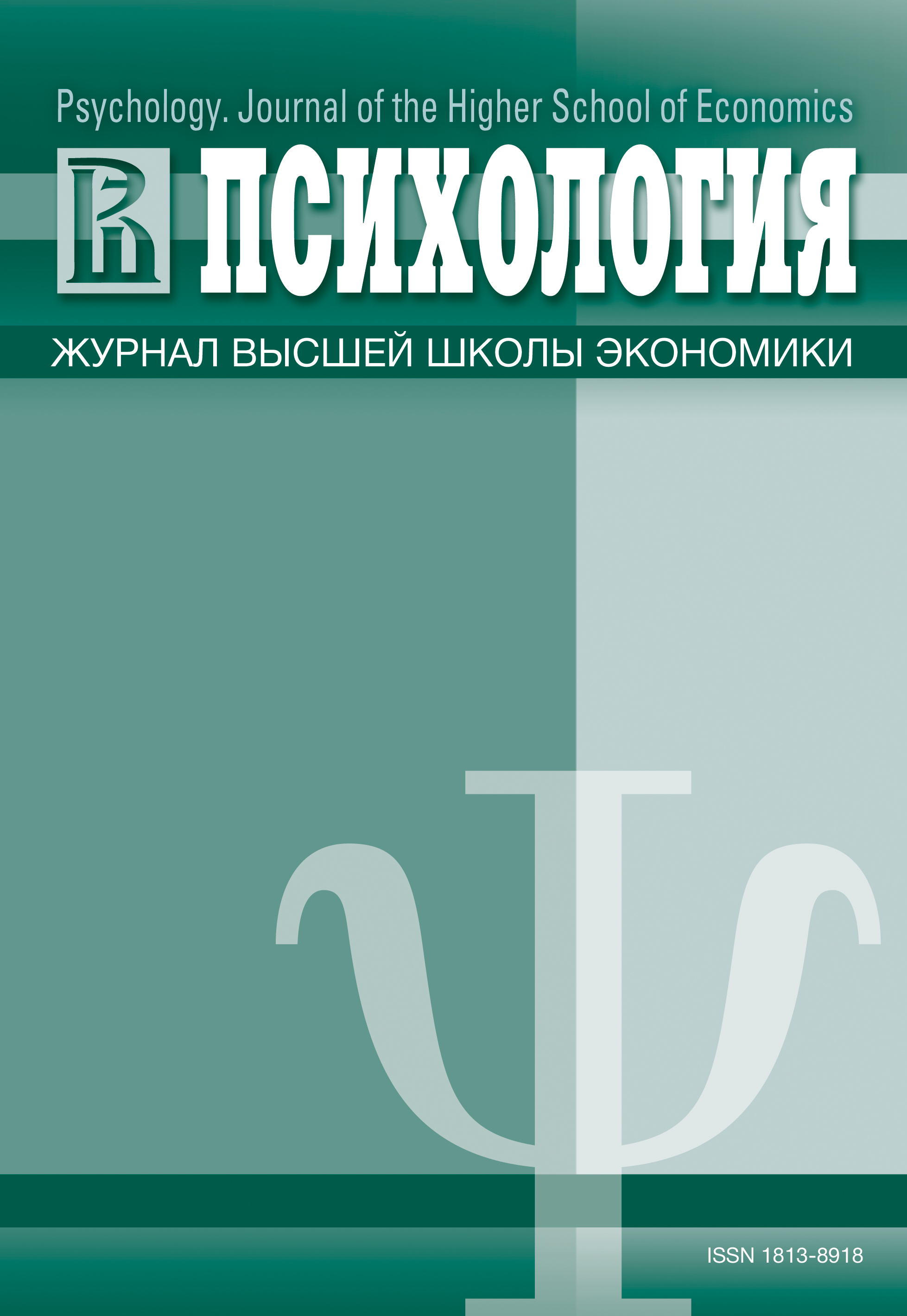<p>“Good” And “Bad” Reflection: From An Explanatory Model To Differential Assessment (in Russian)</p>
Keywords:
reflection, self-regulation, introspection, rumination, psychological well-being, self-distancing, systemic reflection, consciousness, self-experience, structural equation modelling
Abstract
We analyze the problem of the role of reflective processes in self-regulation and explain the diversity of existing opinions by introducing a model of reflective processes that differentiates their positive (systemic reflection) and negative varieties (quasi-reflection, introspection). The model was operationalized in a new instrument, 30-item Differential Test of Reflection (DTR) with scales of systemic reflection, introspection, and quasi-reflection. The paper describes 6 studies aimed at development and validation of the DTR. The structure of the instrument was established using confirmatory factor analysis in an Internet sample (N=3860) and cross-validated in a summer school participant sample (N=261). The scales demonstrate acceptable reliability (0.78 < α < 0.85); the two negative reflection scales are moderately correlated and show weak associations with the systemic reflection scale. All three reflection scales were positively associated with other existing reflection indicators. The systemic reflection scale showed weak to moderate positive correlations with measures of happiness, life satisfaction, openness to experience, emotional stability, and positive solitude. The introspection scale demonstrated moderate negative correlations with measures of happiness, life satisfaction, subjective vitality, meaning, hardiness, action orientation, and emotional stability, as well as positive ones with measures of loneliness and dependence on communication; the quasi-reflection scale showed weaker, but similar effects. In samples of large business owners and top-managers (N=21) and yoga practitioners (N=51) we found lower (d > 0.80) introspection and quasi-reflection scores, compared to the two normal samples. The results suggest that the DTR is a reliable and valid instrument for differential assessment of reflective processes.Downloads
Download data is not yet available.
Published
2015-01-19
How to Cite
ЛеонтьевД. А., & ОсинЕ. Н. (2015). <p>“Good” And “Bad” Reflection: From An Explanatory Model To Differential Assessment (in Russian)</p>. Psychology. Journal of the Higher School of Economics, 11(4), 110-135. https://doi.org/10.17323/1813-8918-2014-4-110-135
Issue
Section
Articles section





